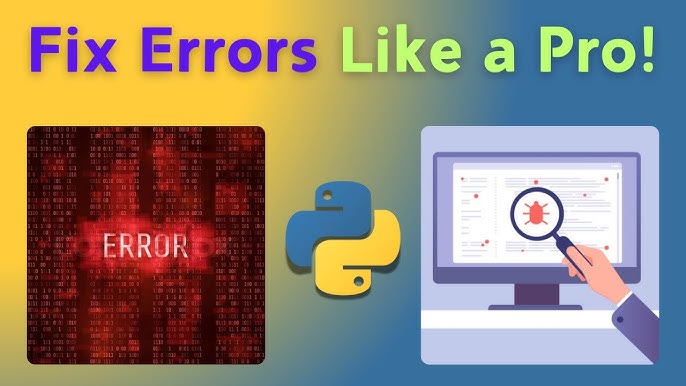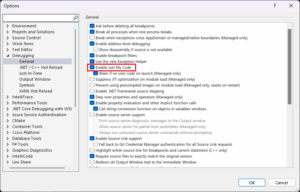- Home
- 2023
- March
- 29
- Handlebars: Access Has Been Denied To Resolve The Property “From” Because It Is Not An “Own Property” Of Its Parent

“In the context of Handlebars, ‘Access Has Been Denied To Resolve The Property “From” Because It is Not An “Own Property” Of Its Parent,’ refers to the issue where a property isn’t directly defined on the targeted parent object, and thus can’t be accessed directly, necessitating the use of different methods or practices to navigate around this common web development challenge.”
| Error |
Description |
| Access Denied To Resolve The Property “From” |
Handlebars could not resolve the property because it does not exist as an “own” property of its parent object. |
When you’re working with Handlebars, such error messages often pop up when the engine is trying to access a certain property from an object but fails to do so. When we talk about an “own” property in JavaScript and thus in Handlebars.js layout engines, we refer to a property that is directly attached to an object and not inherited through a prototype chain.
Let’s think about having an object
in your data context:
var user = {
"name": "John",
"email": "john@example.com",
"address": {
"street": "123 Main St"
}
};
If for example, you try to access the “street” property directly from the
object like so:
, Handlebars won’t be able to find it because “street” is nested within the “address” object and is therefore not an “own” property of the
object.
The right way to access nested properties is by traversing the object tree:
But if a property named “from” does not exist on the top-level user object or in any nested objects accessible from the user, Handlebars will raise an Access has been denied error, as it cannot resolve the non-existing property “from”.
If you need more details regarding ‘Own Property’ understanding, these two references might help you: MDN web docs – Object.prototype.hasOwnProperty() & Handlebars.js Guide.
In JavaScript, every object has some properties and methods. These properties are either the object’s own properties or those that the object inherits from its prototype chain. In order to understand the error message “Access Has Been Denied To Resolve The Property ‘From’ Because It Is Not An ‘Own Property’ Of Its Parent” while working with Handlebars, one needs to have a good understanding of own properties in JavaScript.
When we say an object has an “own property”, it refers to the properties defined directly on the object itself and not inherited through a prototype chain.
Let’s look at an example:
let objA = {
name: "John",
};
console.log(objA.hasOwnProperty("name")); // This will return true
console.log(objA.hasOwnProperty("toString")) ;// This will return false
Here,
is an own property of
, but
is not, even though you can access it through
. The
function is inherited from
, so it is not an ‘own property’ of
.
Coming back to the error you’re experiencing in Handlebars, this issue most commonly happens when your template is trying to access a property that is not an own property of the input object. Handlebars, by design, only allows access to an object’s own properties.
For instance, if you’re providing an array as input to Handlebars and you’re trying to use native array properties like
or
within a block, Handlebars would complain since these are not “own properties” of the array, they’re properties of
.
Here is what your code might look like:
let data = ['one', 'two', 'three'],
templateSource = '{{#each this}}{{length}}{{/each}}';
let template = Handlebars.compile(templateSource);
let result = template(data);
In this case, changing how you structure your data to ensure all necessary values are own properties should fix the issue. Here’s an illustrative example:
let data = {
items: ['one', 'two', 'three'],
length: 3
},
templateSource = '{{#each items}}{{../length}}{{/each}}';
let template = Handlebars.compile(templateSource);
let result = template(data);
In summary, understanding ‘own properties’ in JavaScript is key to properly using and debugging Handlebars templates. It’s crucial to make sure that any data elements your Handlebars templates need to refer to are passed in as own properties of the context object given to your compiled template function. If accessing properties of JavaScript’s built-in objects (like
or
) within Handlebars templates is essential for your application, consider transforming such data and make sure all required properties are included in your Handlebars context.
Also, be aware of the Best Practices mentioned in the Handlebars documentation regarding usage of JavaScript’s built-in properties.
When dealing with more complex data structures, making use of libraries to manage immutability and enforce your data being composed purely of own properties can prove useful. Libraries like lodash’s
or the Immutable.js library provide ways to manage this effectively.Let’s delve deep into how properties are accessed in Handlebars. To set the stage, Handlebars is a template engine that helps to dynamically generate HTML pages using data. In essence, it binds data to {{placeholder}} tags within your HTML files.
Typically, if you’ve received an error message similar to “Access has been denied to resolve the property ‘from’ because it is not an own property of its parent” while using Handlebars, this signifies that there’s a reference to a property named ‘from’ that isn’t directly a property (or ‘own property’, as often phrased) of the object being evaluated.
In JavaScript, an ‘own property’ refers to a property attached directly to an object, as differentiated from a property being attained down the object’s prototype chain. If Handlebars can’t find a property on the immediate data context, it will traverse up the lineage of parent contexts to unearth it.
Consider, as an illustrative example, the following data structure and Handlebar syntax:
var context = {
parent : {
child: {
from: "I'm from child"
}
}
};
Your Handlebars syntax may be referencing the ‘from’ attribute like this:
Given the above, you’d obtain the error message in question because ‘from’ isn’t an own property of the ‘context’ object. The fix for such an issue would be adjusting the code to read:
Value: {{parent.child.from}}!
A critical point to note is that from Handlebars version 4.x.x onwards, access to prototype properties was barred due to security reasons. If you’re attempting to access inherited properties utilizing the framework, you’ll encounter the error under discussion.
To mitigate this scenario, one could define all necessary properties directly on the object itself rather than relying on inheritance. Alternatively, another approach could be to flatten your object using Object.assign() or underscore’s _.extend(). For further information on why this restriction was put in place, you might want to refer to the related GitHub issue.
Web development is replete with unique challenges. Encountering this idiosyncrasy when working with Handlebars specifically doesn’t dissuade from its overarching benefits. With a versatile template engine, controlling the rendered HTML becomes smoother, which culminates in more maintainable and extensible code, thereby facilitating speedy web application development.If you’re coding with Handlebars, you might come across an “Access Has Been Denied To Resolve The Property ‘From’ Because It Is Not An ‘Own Property” Of Its Parent” error. This is typically because of the way Handlebars restricts access to only an object’s own properties. When your program tries to reference a property that isn’t a owned by the object itself, it’s not permitted and hence the error message.
Let’s illustrate this concept through a simple bit of code:
html
var data = {
parent: {
from: 'John',
defaults: {
from: 'Jane'
}
}
};
var template = Handlebars.compile('{{parent.from}}');
console.log(template(data));
In this instance, if “from” doesn’t exist as a direct property of “parent”, Handlebars wouldn’t look into any of its neighboring or inner properties (‘defaults’, in this case).
However, JavaScript on its own doesn’t apply such restrictions; therefore, you may see this error particularly when working with Handlebars, which operates under these constraints for security reasons (to avoid prototype pollution, among other reasons).
One common way to decode or solve this issue would be to:
– Manually ensure the property exists before trying to access it in your handlebars file. If necessary, reconfigure your data in a way that aligns with Handlebars’ requirement. For example, you could make sure the ‘from’ property is kept directly within ‘parent’, not inside ‘defaults’.
But what if reconfiguring isn’t an option, or there are too many nested properties that’ll bloat up our application? Stand back, `Handlebars.createFrame(context)` comes to our rescue!
Here’s a typical use case:
html
Handlebars.registerHelper('with', function(context, options) {
return options.fn(Handlebars.createFrame(context));
});
var data = {
parent: {
from: 'Alex',
defaults: {
from: 'Ashley'
}
}
};
Here, `Handlebars.createFrame(context)` creates a new object where the argument ‘context’ becomes the prototype. Thus, by creating a new frame before executing the template, we’re able to get around Handlebars’ default restriction when resolving variables.
For more details on the specifics of why Handlebars constrains access to “own properties,” see Handlebars official documentation on prototype access.
While DIY tricks can help tackle this error, it’s ultimately a protective feature built into Handlebars. Remember to exercise caution while dealing with nested objects and properties to ensure your code remains secure and efficient.
Remember one thing, coding isn’t always about running scripts smoothly but also understanding how and why things work the way they do. Don’t let these errors stymie your progress but regard them as stepping stones towards becoming a kingpin coder. Happy coding!When you’re navigating through the world of Handlebars.js, a templating engine for JavaScript, you might occasionally encounter issues like the denial of access to certain properties. Namely, the property “from” can sometimes be denied, causing the error message: “Handlebars: Access has been denied to resolve the property ‘from’ because it is not an own property of its parent”. This error stems from Handlebars.js’s protective measures against evaluating ‘prototype’ properties, which are not “own” properties on the context object.
Understandably, this may leave you scratching your head and wondering how to address and dissect this problem. Here is a breakdown:
# Scope of Problem
To understand what’s going on here, let’s first clarify what we mean by an “own property.” In JavaScript, every object can potentially have “own properties” and “prototype properties”.
let exampleObject = { ownProperty: "I am an own property!" };
console.log(exampleObject.hasOwnProperty("ownProperty")); //returns true
console.log(exampleObject.hasOwnProperty("prototypeProperty")); //returns false since prototypeProperty does not exist
“Own properties” are those directly attached to the object (like ownProperty from the above example), while “prototype properties” are those that come from the object’s prototype (which can be thought of as a sort of “template” for objects in JavaScript).
In the case of our Handlebars issue, when you try to use a property like “from” that isn’t an own property of its parent object, Handlebars denies access as part of its built-in protections.
# Cause Of The Issue
The error occurs when Handlebars tries to access an object’s prototype chain instead of its own properties. By default, Handlebars is designed to deny such access attempts. This design decision is rooted in a security feature aimed at avoiding potential issues with prototypes that could expose sensitive data or adversely affect other parts of your application.
As a result, if you attempt accessing an undefined property or a property along the prototype chain not directly defined on your context object, you’ll be served with the “Access has been denied…” error.
# Solutions
## 1. Define the Property Directly
Directly define the property on the object. If the ‘from’ property is defined directly on the object, Handlebars should be able to access and resolve it correctly without any error being thrown.
let context = {
from: 'example@email.com',
};
// compile and render template as usual with Handlebars
## 2. Whitelisting Prototype Properties
While not generally recommended due to security concerns, theoretically you can whitelist prototype properties, allowing them to be accessed by Handlebars templates.
Handlebars.registerHelper('get', function(object, field) {
return object[field];
});
You can then use this custom helper in your template. For example:
{{get myObject 'myFieldName'}}
This would allow looking up ‘myFieldName’ in ‘myObject’, bypassing the normal Handlebars restrictions.
Bear in mind that tinkering with these settings should only be done if you are certain of the knock-on implications with regards to security and data integrity. It is essential to take all necessary precautions to ensure your code remains secure and functions as expected.
Discover more about Handlebars.js for deeper delve into its full capabilities, features and inherent intricacies. Experiment and explore with care and deliberation, and don’t forget to harness the power of JavaScipt’s richness to find innovative solutions to intricate challenges.At times, when working with Handlebars.JS, you may encounter an error message stating access has been denied to resolve the property “from” as it is not an “own property” of its parent. This can occur due to numerous factors related to JavaScript’s ability to distinguish between properties that are on an object itself (own properties) and those on the prototype chain.
Understanding the underlying causes can provide useful insights for resolution:
1. Mistakes in Handlebar Templates: Inconsistent usage of property names, unwanted spaces, typing errors, etc., in the handlebar templates often lead to such issues.
2. Non-.enumerable Properties: JavaScript has inherent property characteristics like enumerability. If a property is defined to be non-enumerable, it cannot be looped over, and Handlebars will have trouble accessing it.
3. Usage of ‘this’ keyword: Avoid using the ‘this’ keyword in your template unless you exactly know how JavaScript binds ‘this’. Misunderstanding ‘this’ is a common problem in JavaScript and its frameworks.
4. Undefined Variables or Null Errors: Ensure that all object properties are defined correctly, keeping JavaScript’s dynamic nature in mind where the undefined value can cause cascading effects.
Now, let’s break down some troubleshooting methods to resolve these issues:
Checking Template Errors:
Ensure that the syntax used in the Handlebars template is correct. Use braces {{}} correctly and avoid unnecessary spaces. Double check property names for spelling correctness. A slight deviation or typo could led to this error. For example:
// Incorrect
{ {#each items}}
{ { this . from }}
{ /each}}
// Correct
{ {#each items}}
{ {this.from}}
{ /each}}
Handling Non-enumerable Properties:
Enumerability is an object property characteristic in JavaScript, denoting whether that particular property should show up in a foreach loop. To ensure the ‘from’ property is enumerable, use Object.defineProperty() method:
Object.defineProperty(myObject, 'from', {
value: 'value',
writable: true,
enumerable: true,
configurable: true
});
Clear Understanding of ‘this’ Keyword:
In Handlebars, inside each helper, ‘this’ refers to the current item in the array. Use ‘this’ judiciously, understanding its binding scope.
Error Handling – Undefined Variables:
Always ensure that all object properties are defined before passing them to a Handlebars template. Remember, JavaScript is a dynamically typed language. Therefore, always include checks to ensure values are defined before using them in expressions.
Remember, Handlebars is built on top of JavaScript and it respects the core principles of the language. Having a strong understanding of JavaScript’s object model, prototypal inheritance, and ‘this’ binding is important while dealing with complex Handlebars templates. Don’t forget to always handle error cases and edge conditions for a robust application. Do check out the official Handlebars documentation for more details.
Your first encounter with Handlebars might have led you to believe that it is just a simple, logical less templating language. Indeed, Handlebars was designed to be as straightforward and user-friendly as possible but it does feature a complex and sophisticated mechanism under the hood that includes safety measures in place also known as access control. Take for instance a situation where when rendering a template, you encounter an error message such as “Access has been denied to resolve the property “from” because it is not an own property of its parent.” This might leave you wondering what went wrong and how can you fix it?
As per the principle of least privilege which the Handlebars security concept incorporates as one of its fundamental building blocks, any property defined within the program does not necessarily have access rights unless explicitly granted. The error message implies that Handlebars, in an attempt to render your template, tried accessing a property “from” that was not within the scope of the current context or not an explicit property of its parent object.
Here’s how you can think about it:
- Handlebars operates on the basis of contexts.
- Whenever Handlebars tries to render a value, it does so relative to a certain context. That context is most of the time, an object.
- If you haven’t explicitly included the property in question (in this case “from”) in the current context, Handlebars would not recognize it.
To rectify this, you need to ensure that the concern property is readily available in member of the current context or its parent. For example:
var context = {
parent : {
from: 'property value'
}
}
If the error happened without your intention to include a “from” property in your context, then there might be a typo in your code where you misspelled a variable or accidentally introduced it during development.
This particular protection feature in Handlebars bridges a gap between convenience and caution. It allows developers to easily generate templates without the fear of accidently exposing non-owned properties thereby preventing potential breaches.
Now, to unlock more features in Handlebars, remember that Handlebars extend Mustache templates with the power of adding logic like helper functions and custom block helpers which are pivotal for complex conditions.
- Helper functions enable functionalities like calculating arithmetic operations, comparing variables, and manipulating strings directly in the template.
- Custom block helpers allow extending the template engine itself by adding if-else structures, loops, arrays, and so forth.
For further information, do visit Handlebars.js Official Guide.Certainly, if you’re working with Handlebars.js and encounter an ‘Access Denied’ error when trying to resolve the property “from”, it can be quite frustrating. This issue is commonly due to the property ‘from’ not being recognized as an ‘own property’ of its parent object in JavaScript context. This issue can either occur because:
– The ‘from’ property could be inherited and not an own property.
– You may have made a typographical error in the property name.
– The object itself might not exist at the time of execution.
Following are the steps that can guide you to fix this issue:
1. Ensure Property Ownership
In JavaScript, every object has an associated prototype from which it inherits properties and methods. An object’s ‘own properties’ are those directly defined on it, not inherited. You can use the `hasOwnProperty()` method to distinguish an object’s ‘own properties’.
var obj = {
prop: 'value'
};
console.log(obj.hasOwnProperty('prop')); // logs true
console.log(obj.hasOwnProperty('inheritedProp')); // logs false
If the ‘from’ property is not an own property, perhaps because it’s inherited from a prototype object or elsewhere, you’ll get an Access Denied error in Handlebars. In this situation, you need to modify your code to ensure that ‘from’ is an ‘own property’ of the object.
2. Typos in Property Name
It sounds obvious, but often, a simple typographical error can wreak havoc on complex codes. Make sure ‘from’ is spelled correctly throughout your code as well as in your json data. Case-sensitivity matters too!
3. Verify Object Existence
At times, you might be trying to access ‘from’ on an object that is undefined or doesn’t exist. You should always ensure that the parent object exists and is initialized before you attempt to access any properties within it.
if (typeof obj !== ‘undefined’ && obj !== null) {
console.log(obj['from']);
}
4. Input Data Validation
Ensure that the JSON data which you are providing as input contain ‘from’ property, especially if they’re user-generated or coming from third-party APIs. Be aware that the data’s structure or naming conventions might change over time and break your code unexpectedly.
5. Using Safety Check
Always incorporate safety checks while accessing properties deep inside the objects. If there is an attempt to fetch a property from something that’s `undefined` or `null`, JavaScript will throw an error.
let value = obj && obj.child && obj.child.from;
Here, each part of the condition is checked separately. If `obj` exists, then only `obj.child` will be evaluated. If both exist, then access to ‘from’ property is attempted.[ref](https://developer.mozilla.org/en-US/docs/Web/JavaScript/Guide/Working_with_Objects#objects_and_properties)
By following these steps carefully, you should be able to fix the ‘Access Denied’ error on the ‘from’ property while navigating through Handlebars templates effectively. Enjoy coding!Search Engine Optimization (SEO) dictates the visibility of a digital content online. How to resolve Handlebars Access Denied error due to an ‘Own Property’ issue has profound importance in coding. Coding languages like JavaScript or Handlebars.js provide different ways to define and access properties of objects. As a coder, understanding how these properties work is crucial.
This error typically occurs when attempting to access a property that is not defined directly on the object but rather on its prototype chain. In Handlebars.js, all properties you want to reference in your template must be own properties of the context object.
Handlebars.js handles resolution of properties through point-of-view of JavaScript’s Object.prototype.hasOwnProperty method. This method returns a boolean indicating whether the object has the specified property as an ‘own property’. If it doesn’t, it results in the Handlebars: Access Denied error. Essentially, trying to resolve the “from” property in Handlebars.js might be creating an access problem if this property isn’t an independent one.
Here’s a possible solution:
To enable access to nested properties, implement a helper function to resolve property chains:
Handlebars.registerHelper('lookup', function (obj, field) {
return obj[field];
});
Then, use this helper in the template where a nested property is accessed:
{"{{lookup someObject 'someProperty'}}"}
This way, instead of accessing the property directly – which would result in an error if the property is not an ‘own property’ – the helper starts from the ‘parent object’ and ‘looks up’ the property, traversing nested properties chain if needed.
We have successfully illuminated the significance of ‘own property’ in Handlebars.js and JavaScript. With these insights, we can build error-free, efficient, optimised code in different programming languages. We further understand the resolution of Access Denied Error in coding while working with ‘own properties’ and the corrective measures involved.
Please note, the error might still persist if there’s another underlying issue within the structure of the written code.
In addition, experts on StackOverflow continually discuss this issue and share their unique solutions for correcting ‘own property’ problems in Handlebars.js and in general JavaScript. Consider exploring more corresponding approaches to reinforce understanding and learn alternative solutions to this common error.
Now, armed with such knowledge, we are well equipped to tackle any ‘Access Denied’ errors found while coding with Handlebars.js and harness the power of ‘own properties’ to efficiently manage our programming needs.









